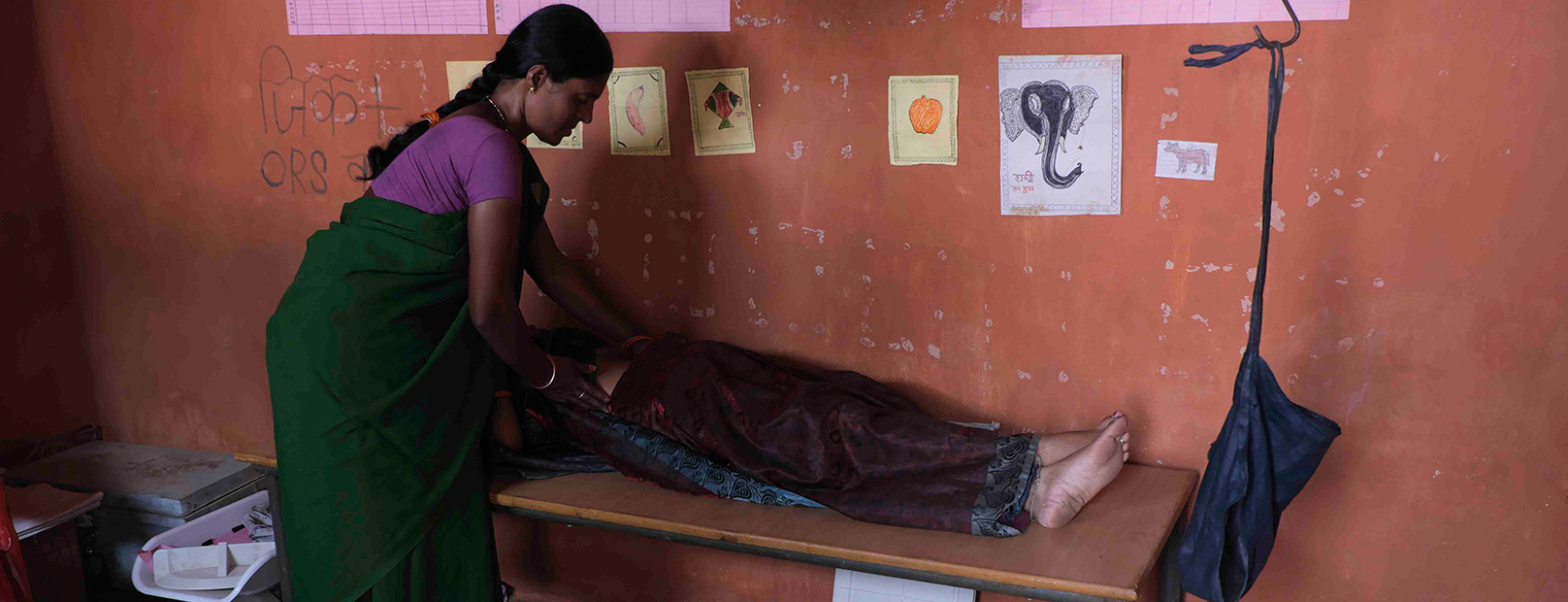- Home
- Themes
- Maternal and Child Health
- HBGDki

The well-being of mothers, infants, and children is an essential public health goal for India. A healthy baby born to a healthy mother, put on the right growth trajectory after birth, is more likely to grow to become a healthy and productive member of our society. Through the Maternal & Child Health program, significant progress has been recorded over the last few decades. The maternal and infant mortality rates in India have fallen on average. However, there are still countless disparities within the country.
In 2014, the Quantitative Sciences Team at the Bill and Melinda Gates Foundation launched the Healthy Birth, Growth and Development knowledge integration (HBGDki) initiative. The HBGDki team began by collecting study data related to healthy birth, growth and development from around the globe and created one central, secure repository to store the large data.
The goal was to enable the broader impact of insights from past and ongoing studies by incorporating individual study data into larger pooled analyses, to transform data into insights.
The focus was on reducing the global burden associated with three complex and interrelated outcomes: Preterm birth, physical growth faltering and impaired neurocognitive development.
HBGDki facilitated global collaborations, data sharing and learning from extant longitudinal clinical studies, clinical trials and cross-sectional databases. This allowed HBGDki collaborators to learn from all available data rather than gaining incomplete insights from partial datasets. The HBGDki effort was not aimed at replicating any single data reported result.
The foundation has built the Global Health Analytics Platform (GHAP), a modelling, analysis, and interactive visualization suite which facilitates the process by which data scientists collect and connect insights to construct an accurate representation of Global Health problems.
To accelerate learning and catalyse the generation of knowledge required to transform the lives of vulnerable populations, this platform aids in developing evidence-based gaps into specific interventions to improve child health over generations.
HBGDki India
The Grand Challenges India team led the creation of an HBGD knowledge integration (HBGDki) data consortium with fervour, under India Gov’t sponsorship to rollout the implementation and facilitate India investigator integration with the global HBGDki collaboration.
The Indian groups which are engaged in community-based research related to child health and nutrition, development of interventions and their evaluation over years were reached out to contribute evidence-based research in improving the status of child health in India.
Specifically, the India HBGDki initiative launched in India in 2015 provided technical assistance and supplemental funding to India ‘Data Contributors’ to facilitate collaborations to permit greater data sharing, and collaborations to ensure that leading projects and studies in India have the opportunity to participate in global data modelling and knowledge collaborations.
The program supported the rapid aggregation and comparison of data from the fragmented sources (data from observational studies, randomized controlled trials, independent and national surveys and the like data) by providing a single platform for this data to be stored and essentially create a knowledge compendium that has allowed researchers and others to access a variety of data from different parts of the world, to allow them to obtain a much clearer picture of global trends and analyses on factors that affect childbirth and subsequent development.
The HBGDki collaborator was issued certificates for contributed studies datasets into the HBGDki Global Health Analytics Platform (i.e., the GHAP), confirming that these contributed data sets are free of Personally Identifiable Information (PII’s).
Contributing Data and Teams
Ten researchers signed the agreement to share 24 datasets, 23 datasets have been curated and uploaded on GHAP Platform. The remaining one dataset has initiated the upload of data on SharePoint.
Study Explorer – studyexplorer.io
The multi-dimensional datasets are available in the repository - http://studyexplorer.io., which is a lightweight tool to help understand the contents of datasets that were contributed to the HBGDki. The tool enables to search for the presence of standardized data fields such as anthropometry measures, biomarkers, microbiology tests, and nutrient intake quantities.
HBGDki - Training and Workshops
The ki Group has conducted several hands-on pieces of training and workshop to acquaint the Indian Science community with advanced data science tools.
The ki team at the Foundation along with data scientists and global health researchers have been analyzing the HBGD data through data science rallies which are modelled during rally sprints. The rallies usually run for 2 weeks and address a specific question, hypothesis, and deliverables and are based on efficient, sprint-like efforts adapted from the Agile software development method.
The rallies results are producing actionable answers to specific questions about child growth and development. The key to the success of a rally is the teaming of data scientists with domain experts who are in continual communication throughout the rally.
GCI team is actively engaging the researchers for new datasets to invite to the ki platform.